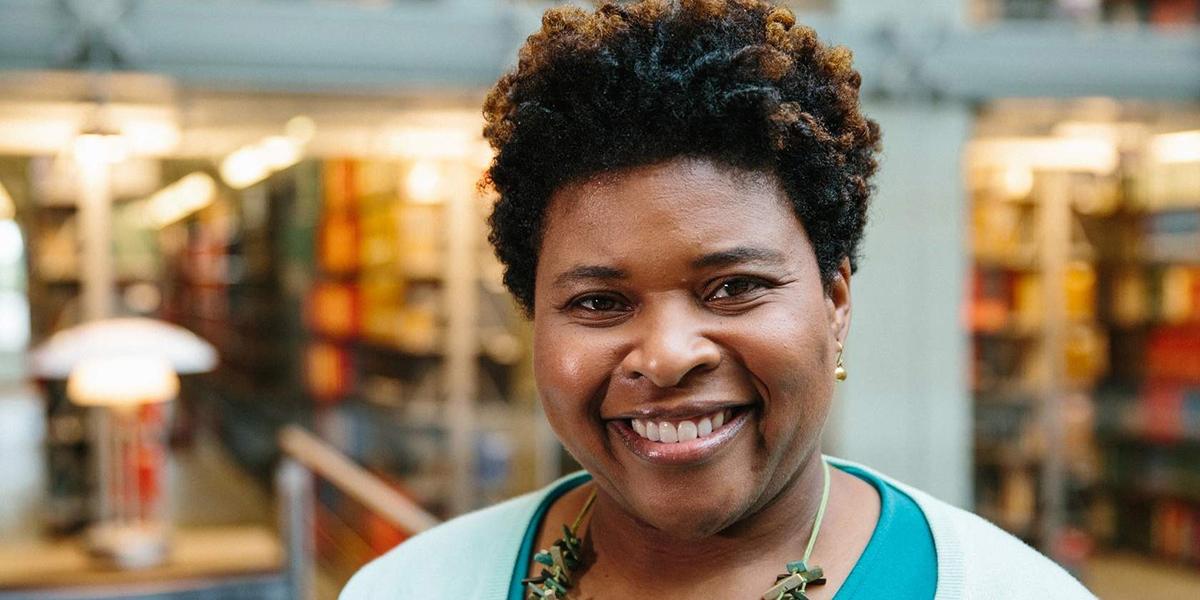Studying political science offered Wendy Smooth a lens to understand why representation matters and the reality that inclusion in decision-making has big consequences for communities. She sees the university as no different from governing institutions; it matters to have a diverse group at every table from the chemistry lab to the president's cabinet.
Now the senior vice provost for inclusive excellence, Smooth faces her biggest challenge as the university's new diversity, equity, and inclusion quarterback, charged with leading the inclusive excellence team for the Office of Diversity and Inclusion (ODI), the Office of Institutional Equity, as well as the Kirwan Institute for the Study of Race and Ethnicity.
In her new role since August, Smooth said she has been hitting the ground running by digging into the details of her expansive DEI portfolio delving into what each office does when the rubber meets the road. Meanwhile, on the horizon stand a host of opportunities for Smooth's leadership this year: executing a university-wide diversity, equity, and inclusion climate assessment, leading the first national search for the next leader of the Office of Diversity and Inclusion, all while rolling out the welcome mat for newly hired professors brought to campus as part of the RAISE Initiative.
The work on the diversity, equity, and inclusion climate assessment serves as a natural starting point for Smooth, a Jackson, Mississippi native who graduated from Xavier University in New Orleans - the nation's only Catholic HBCU - with a degree in political science. "We need to establish that baseline of who we are, and only then we can launch programmatic efforts that seek to address any disparities that we see existing in our classrooms, workspaces, and learning environments," she said during an interview at her Bricker Hall office. "The better we understand our university culture the better we will be in terms of developing programs that remove the barriers to everyone's full participation."
A former associate dean for diversity, equity, and inclusion for the sprawling College of Arts and Sciences, Smooth said viewing the concept of diversity through the widest lens possible is beneficial in a university setting. "We have to think about diversity in terms of race, gender, veteran status, viewpoints, rural vs. urban. All of these things matter when we are thinking about how we experience the world around us," she said. "When we expand the conversation to include more people, we are stronger, we are more innovative, and we are more dynamic."
With the vice provost position open at the Office of Diversity and Inclusion after Dr. James L. Moore III assumed his new role as assistant director for the National Science Foundation's Education and Human Resources (EHR) Directorate over the summer, Smooth said the Ohio State's first-ever national search for a new leader of ODI signals a "doubling down on inclusive excellence" to the higher education community.
"We're not presenting hollow promises around inclusive excellence, we are resourcing work that we intend to do," she said. "A national search allows us to engage around broad questions of who we are and where we can go as an Office of Diversity and Inclusion. By speaking with cutting-edge, highly innovative thinkers who are considering joining us, we get to hear new possibilities and see expanded visions of ourselves through their eyes."
Smooth said whoever lands the ODI top spot needs to be a "futuristic thinker" and "an incredible collaborator" who understands the shifting demographics in Ohio and across the region as well as the DEI challenges across higher education. "ODI is a central resource, but it's challenged to reach all spaces of the university and offer some support to our regional campuses' DEI work," she said. "We need someone who is really interested in radical collaboration to extend the reach of ODI services and someone who can empower the incredible talent already at ODI."
Also arriving soon on campus will be dozens of new tenure-track professors hired as part of the RAISE Initiative, a campus-wide commitment to hire 50 scholars who focus on social equity and racial disparities in their research. Making sure the campus is ready for them is an important and daunting task that cuts several ways, according to Smooth.
"How do we make sure we're building research opportunities and communities for students to connect to these new faculty members?" she asked. "And how do we build connections for the faculty so they are assured they are coming to a community that is thinking in a futuristic way about these 21st-century questions around race and social disparities?" Smooth says, “ODI will be key to how we answer these questions.”
As the U.S. Supreme Court hears challenges to race-based admission processes and controversy persists around DEI concepts like critical race theory, Smooth said the university's role should be to help students engage civilly around controversial subjects, even as our larger society is stymied. "We don't have good models in the broader society about how to listen critically, hear both sides, and deliberate using an elevated statesman/stateswomen approach," she said. "What we want to offer our students are opportunities to dive into difficult dialogues but to do it with a sense of integrity, a sense of learning, and a sense of curiosity. We need to model this through how we engage at the university."
At the end of the day, the rich diversity of Ohio State works as a "laboratory for inclusion" equipping all students for workplaces where they must use teamwork to solve problems. "We need to send students into the workforce who are accustomed to working in diverse groups, who understand a variety of backgrounds and experiences and appreciate how that can lead to different ways of seeing a solution to a problem," Smooth said. "Students who already have that experience are so much further along when they get to the workforce."
